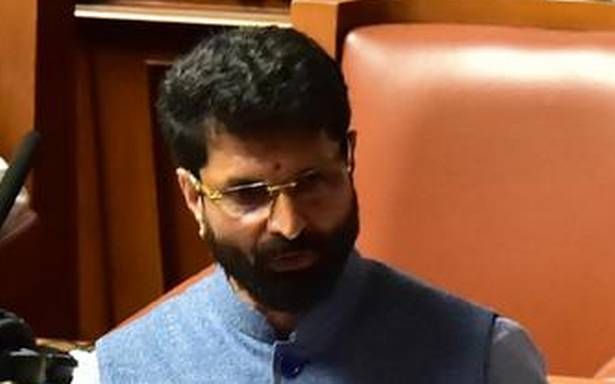 |
|
The Karnataka High Court's decision to grant interim bail to BJP legislator C.T. Ravi highlights a complex interplay between political discourse, legal procedure, and the delicate balance between freedom of speech and the prevention of harassment and insult. Ravi's arrest stemmed from allegations of using derogatory language against Congress MLA Laxmi Hebbalkar within the State Council at Belagavi. This incident, occurring within the confines of a legislative chamber, underscores the potential for heightened tensions and the need for strict adherence to decorum. The High Court's judgment emphasizes the importance of due process, focusing on procedural irregularities in Ravi's arrest rather than the merits of the accusations themselves. The court's decision serves as a significant legal precedent, underscoring the necessity of law enforcement agencies to meticulously follow established procedures when dealing with individuals holding public office.
The core argument presented by Ravi's defense centered on alleged procedural violations during his arrest. Senior Advocate Sandesh J Chouta argued that the police failed to adhere to the provisions of the relevant sections of the law (Section 35 of BNSS), which requires the issuance of a notice before arrest for offenses carrying a sentence of up to seven years. The absence of this notice, coupled with the lack of clear communication regarding the grounds of arrest, formed the basis of the claim of fundamental rights violation under Article 21 of the Indian Constitution. This argument strategically shifted the focus from the nature of Ravi's alleged remarks to the legality of his apprehension, forcing the court to examine the procedural aspects of the case rather than delve into the potentially inflammatory details of the political spat.
The prosecution, while acknowledging the registered criminal case, failed to provide conclusive evidence that the prescribed procedures had been followed. Their inability to definitively confirm whether the notice was issued or the grounds for arrest were provided significantly weakened their opposition to the bail application. This lack of clear and demonstrable adherence to procedure proved crucial in the court's decision-making process. The judge, in their ruling, explicitly highlighted the unfortunate nature of the incident, acknowledging that both individuals involved are legislators and that the alleged offense occurred within the legislative assembly. This recognition of the context, while not excusing the actions, provided further weight to the argument that the procedural irregularities should not be overlooked.
The court's judgment, therefore, rests on a careful consideration of procedural fairness rather than a definitive judgment on the veracity of the accusations against Ravi. The court recognized the gravity of the allegations, referring to the incident as “most unfortunate,” but determined that the procedural violations rendered the arrest unlawful. The order emphasizes that even if the allegations are accepted, the penalty for the offense is less than seven years of imprisonment, triggering the mandatory procedural safeguards under the relevant law. The court’s ruling serves as a critical reminder of the importance of upholding the rule of law, even when dealing with high-profile individuals involved in politically charged incidents. The granting of interim bail, contingent on Ravi's cooperation with the investigation, balances the need for legal process with the practicalities of ensuring his availability to the authorities.
The case of C.T. Ravi raises broader questions about the boundaries of political speech within a democratic framework. While freedom of expression is a cornerstone of democracy, this freedom is not absolute and is subject to limitations to prevent the incitement of violence, defamation, and harassment. Striking a balance between robust political debate and the protection of individuals from offensive or harmful language remains a constant challenge for legal systems worldwide. The Ravi case highlights this ongoing tension, focusing the attention on both the substantive aspects of political discourse and the procedural safeguards in place to ensure fairness within the legal system. Further legal proceedings will undoubtedly shed further light on the specifics of the case, but the High Court's decision on interim bail emphasizes the fundamental importance of due process and procedural fairness in the application of the law.
